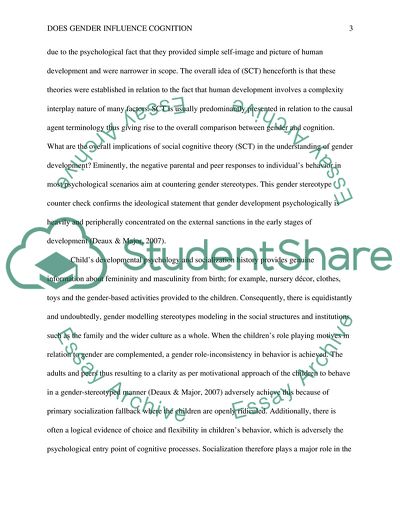Cite this document
(Does gender influence cognition Essay Example | Topics and Well Written Essays - 1500 words, n.d.)
Does gender influence cognition Essay Example | Topics and Well Written Essays - 1500 words. https://studentshare.org/gender-sexual-studies/1871519-does-gender-influence-cognition
Does gender influence cognition Essay Example | Topics and Well Written Essays - 1500 words. https://studentshare.org/gender-sexual-studies/1871519-does-gender-influence-cognition
(Does Gender Influence Cognition Essay Example | Topics and Well Written Essays - 1500 Words)
Does Gender Influence Cognition Essay Example | Topics and Well Written Essays - 1500 Words. https://studentshare.org/gender-sexual-studies/1871519-does-gender-influence-cognition.
Does Gender Influence Cognition Essay Example | Topics and Well Written Essays - 1500 Words. https://studentshare.org/gender-sexual-studies/1871519-does-gender-influence-cognition.
“Does Gender Influence Cognition Essay Example | Topics and Well Written Essays - 1500 Words”. https://studentshare.org/gender-sexual-studies/1871519-does-gender-influence-cognition.


